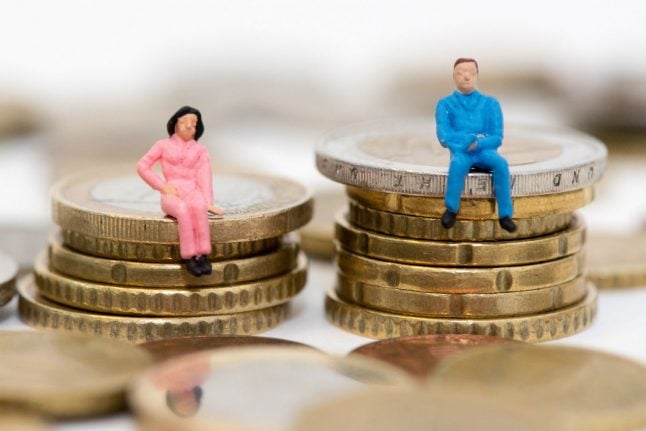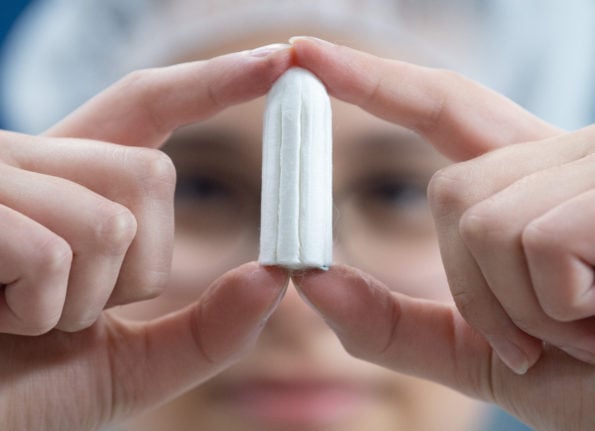The average wage in Germany differs greatly from region to region – and is significantly lower for women than for men, according to newly published figures.
The income for women working full-time in Germany is the lowest in the Saale-Orla district in the eastern state of Thuringia, where the average gross income stands at €2070 per month.
At the bottom of the list for men’s wages is the eastern city of Görlitz, where they earn an average monthly wage of €2273.
READ ALSO: This is how significant the gender pay gap is in Germany
These figures from the Federal Employment Agency have come to light following a request from the Left Party (Die Linke) in the Bundestag in time for International Women's Day on Sunday.
Where women earn the most and least
Within the Saale-Orla district, one in two people works for a low wage. In Görlitz, 45.2 percent of men earn less than the national low wage threshold of €2203 a month.
The highest average wage for a woman working full-time is in the “Car City” of Wolfsburg, Lower Saxony. It stands at €4250, although 14.5 percent of women in this region work for low wages.
For their male counterparts, the average income is €5115 per month, and the proportion of low-wage earners is only 4.9 percent.
Men earn the most in Erlangen, Bavaria with an average income of €5544 – 30.4 percent more than women in Wolfsburg. In Erlangen, women have an average gross income of €3795.
Across Germany, women working full-time earn an average of €3014 per month and men €3468.
A good 26.5 percent of women earn below the nationwide low wage threshold of €2203, compared to only 15.8 percent of men.

Baden-Württemberg, Stuttgart: A car mechanic changes the brake disc of a Range Rover Evoque in a car workshop. Source: DPA
‘Women are still disadvantaged in the job market’
The German government has asked companies to create binding rules on equal pay for work of equal value.
“But women should also be helped in re-entering the job-market, for example after taking time off to raise their children,” stated MP Sabine Zimmermann, who requested the figures.
“In general, the traditional, typically poorly paid female roles and better paid male roles must change “.
The so-called “gender pay gap” generally describes the average wage gap between men and women across all sectors and occupations.
Women usually earn less because they work more often in part-time and lower-paid jobs, for example in the social sector.
Taking these factors into account, the wage difference is smaller, but still there.
Women’s wages in the Erzgebirge district in the eastern state of Saxony are second to last with a monthly wage of €2106 and a proportion of 53.4 percent earning low wages – followed by the district of Cloppenburg in Lower Saxony with €2139 and a low-wage share of 52.7 percent.
Men in the district of Vorpommern-Rügen in the eastern state of Mecklenburg-Western Pomerania are amongst the lowest earners, with an average monthly wage of €2322, closely followed by the Elbe-Elster district in Brandenburg with €2327.
READ ALSO: In eastern Germany, the gender pay gap favours women
Some of the top female earners are in Munich, with €3847 and Frankfurt am Main with €3812 .
“Women are still disadvantaged in the job market – talking and putting things into perspective doesn’t help,” said Zimmerman.
Translated by Sarah Magill



 Please whitelist us to continue reading.
Please whitelist us to continue reading.
Member comments